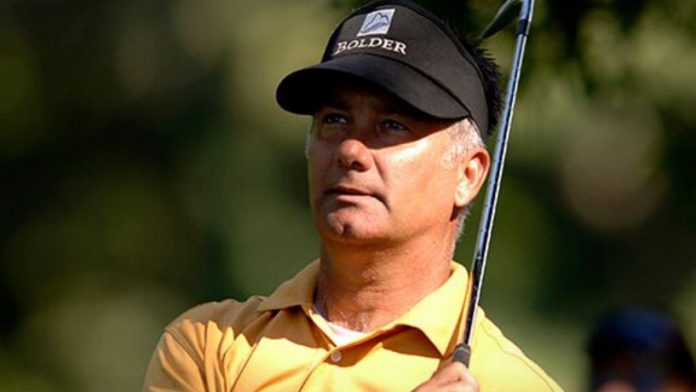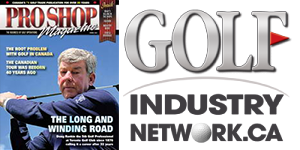
It’s easy to fantasize about a glamorous life playing the PGA Tour—today’s version may include flying to Pebble Beach, California in a private jet to play the AT&T Pebble Beach Pro-Am where you and the other 155 Tour players are treated with gifts, spectacular food and amenities. You tee-it-up at Pebble Beach Golf Links, Spyglass Hill and Monterey Peninsula Country Club, which are three of the most stunningly beautiful coastal golf courses on the planet. Your amateur partner for the week is likely to be a sport legend, a Hollywood A-list actor or a CEO of a Fortune 500 company. You play four rounds of competition with your new best friend, win $2-million for your week’s effort, then jet off to some other destination for a week off because it’s a long season and you don’t want to burnout—sounds pretty good, doesn’t it? That’s in your dreams.
In reality there isn’t a player on the PGA Tour that hasn’t had to endure challenges along the way. I can assure you each player who has earned PGA Tour status has had to overcame obstacles while living on the road.
But these bumps along the way don’t get talked about too much. So, let me tell you about the worst ordeal I had on Tour.
It happened at the final event in the 1986 PGA Tour season when I missed the 36-hole cut in the Tallahassee Open. In that moment, I lost my job by finishing outside the top 125 on the PGA Tour’s Official Money List. To make matters worse, I finished 152nd, outside the top 150 that would have allowed me to keep PGA Tour membership. After missing the cut that Friday I had a restless night projecting what my future might hold as a professional player. Feeling frustrated and lost it was time to head back to Vancouver, lick my wounds, and figure things out in this godforsaken game.
The two months prior to that final event of the season, the 1986 Tallahassee Open, I felt like I was in an emotional death-spiral. As each week passed with either another missed cut or a small paycheque, the pressure was starting to build. Time was running out—I was in the preverbal barrel heading for the waterfall. The current was quickening, nothing was going to stop me going over the falls. Professional golf can be a like that—a brutal existence—absolute mental-incarceration.
The morning after missing the cut, my wife Joanie (Joanie and I were four months married) and I began our flight home to Vancouver from Tallahassee. As Joanie was moving some luggage she turned awkwardly and twisted he knee. This accident was serious enough that her knee needed professional attention. Off to the hospital we went. After X-rays at the hospital doctors recommended Joanie to stay off her feet in order to heal her damaged knee. Joanie and I left the hospital, Joanie on crutches.
We now had to change our flights once again as we went from Tallahassee to Atlanta to Chicago to Vancouver. Off to the airport we go, Joanie hobbling along in pain learning how to figure out how to use these crutches effectively.
Our Welcome Home
After suffering through flight delays in Chicago’s O’Hare Airport we finally arrived in Vancouver International Airport around 2am. Joanie was in serious discomfort and I was still in mental shock after losing our source of revenue, we only wanted to get home and crawl into bed. At least we were home.
I picked up our many pieces of luggage at Baggage Claim placed them on a cart and we proceeded to the Customs Officer who either sends you through or transitioned you to further inspection. We were directed to secondary inspection.
We approached a surly looking Customs Officer who immediately points to my golf bag and says, “What’s this?” I said, “That’s my golf bag.” She engaged me in a rather nasty tone, “Place it on the counter.” Which I did. The Customs Officer starts to open my golf bag and proceeds to examine my golf clubs and contents inside my bag. The Officer asked me, “Where did you get the golf clubs and equipment?” Sensing the Officer was looking to shake me down, I said, “I am a professional golfer and I get my equipment from the golf equipment manufacturer at PGA Tour events.” She stated, “Show me documentation that you paid duty on this equipment.” I stated, “these clubs are not new, they are 2-years old and I don’t have the documents.” Joanie muffled something to me indicating that this Officer was looking to cause us trouble. The Officer barked at Joanie, “What did you say?” Joanie said, “I didn’t say anything to you!” The Officer said, “Did you just call me a bitch?” Joanie said, “Absolutely not!”
The situation started to become very clear and I started to get mad. The Officer asks me, “What’s the retail value on these golf clubs?” I adamantly replied, “I have no idea.” She countered, “You had better get an idea or I will put a price on them that you won’t like!” I replied, “You can put any price on them you want.” So, she did. We repeated this dance with all my golf clubs, balls, golf gloves, golf bag, and umbrella. She tallied up her retail price of all the equipment I had in my travel bag then said to me, “You will have to pay duty on $X,XXX.XX” (an outrageous amount) I said, “I use this equipment in the US where I work and I am not paying the duty, I don’t want them, you can have them.” I felt a little victory that moment leaving the pile of golf clubs on the counter, not giving the Officer the satisfaction she was expecting.
After being on the road for 6-weeks, playing like crap, losing my job, being detained at Canada Customs, giving up my golf equipment I had enough. All we wanted to do was get home and crawl into bed. Joanie and caught a taxi to our home. As we approached our townhouse, we could see our front door was wide open—our home had been burglarized while we were on the road.
Everyday after that was a good day.











